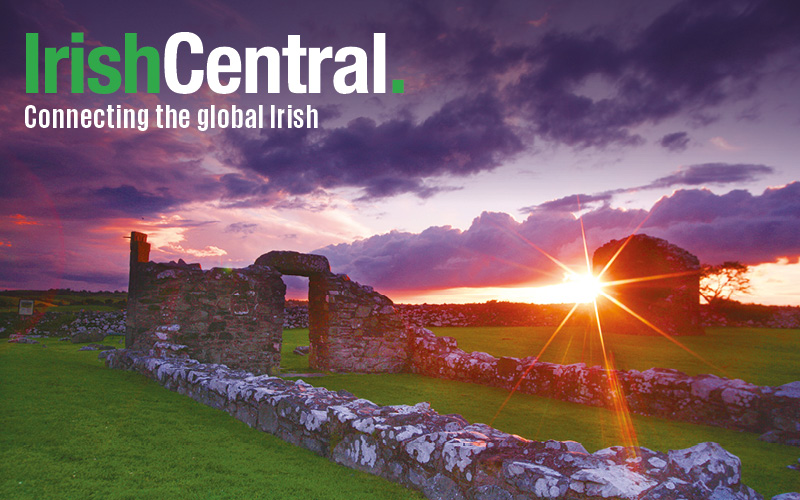It was said to be an occasion of celebrating a number of “ordinary people who produce extraordinary art” who came together in late September in our nation’s capital to be honored as National Treasures for their lifelong achievements as heritage artists.
Nine folk artists were selected earlier this year out of 217 nominees and honored in a series of events around Washington, D.C. for the newly minted 2010 National Heritage Fellows by the National Endowment for the Arts for their contributions to traditional arts in America.
It included a native-born Irishman who is one of the most popular Irish traditional musicians here, Mike Rafferty of Larraga, Ballinakill, Co. Galway who turned 84 years of age last week after returning triumphantly to his long-time home in Hasbrouck Heights, New Jersey.
The recognition and the generous honorarium of $25,000 bestowed on the genial tradition-bearing flute player may have been a long-time coming as he was the oldest of the 11 awardees* from the Irish folk music or dance tradition in the 29- year history of the National Heritage Fellowship Awards.
But that took nothing away from the pride and celebration for the venerable musician who has held fast to his East Galway roots and musical style handed down to him by his father Tom “Barrel” Rafferty going back to his homeplace in Larraga. It is a style which he has been generously sharing since arriving on these shores in 1949.
In recent years, the awards are given out individually in ceremonies at the beautifully ornate Library of Congress followed by a banquet, and both took place on Wednesday, September 22.
Accompanying Rafferty were his wife Theresa and children Kathleen, Michael and his wife Janice, Terry, Patrick and Mary and Mike’s sister Mary DeVito who traveled up from Florida.
Among other invited guests were Dr. Mick Moloney (Limerick) who also received a National Heritage Award in 1999, whose early recognition of Rafferty’s prowess and genuine form led him to include him in the historic Irish musical gathering during the 1976 bicentennial by the Smithsonian Institution and also on the first Green Fields of America tour that arose out of it in 1979.
Those initiatives on behalf of Irish folk artists in this country were instrumental in raising their profile from just kitchen or session musicians playing to a small audiences, even if they were happy enough.
But better opportunities were out there, and it helped to encourage further learning opportunities as well as performance venues for their craft, which mostly they still practiced after work or in retirement.
Like many Irish musicians in America, his work and family came first so it was the off-hours and parties that afforded the chance to play with their peers for many years. Around people like Jack Coen, Joe Madden, Mike Preston and importantly, box player Sean McGlynn from East Galway, Rafferty was coaxed to play more and more.
With the rise of Comhaltas in North America in the 1970s and 1980s, he became a very important tradition bearer for audiences, ceilithe and for younger musicians coming along. In particular, the nascent Cherish the Ladies ensemble led by flute player Joanie Madden- - who later recruited his daughter Mary as a full time touring musician -- fell under his sway for tunes, inspiration and encouragement.
When Rafferty retired in 1989, his music really took off as he began a very prolific period in his life as measured in recording the tunes and musical influences that have characterized his playing.
Working with his daughter Mary, the youngest of the family and the only one to take up Irish music, they produced three wonderful CDs documenting his East Galway style and tempo that not only bonded them so closely, but served as a vivid reminder of the living tradition of Irish music passing through their own family from grandfather to father to daughter.
At 78 years of age he recorded a solo CD with the help of Mary and her husband, Donal Clancy, who produced it for Mike cleverly carrying the essence of Mike’s music by leaving in the choice bits of storytelling attached to his musical selections. When listening to Mike play music or tell yarns, he imparts much more than the notes that make up a tune which one of the things people treasure about him.
Last year he recorded an exceptional album called the New Broom with Willie Kelly, a younger musician trained by Martin Mulvihill who was an old friend of Rafferty's responsible for teaching many New York area children Irish music. Willie developed into one of the finest fiddlers in America, especially noted for playing in the older East Galway and East Clare style with passion, reverence and technique that found favor among musicians twice his age like Rafferty with whom he enjoyed playing whenever he could.
So it seemed so fitting that when Mike was informed of his selection for the National Heritage Fellowship where a concert was part of the ceremonies, that he asked both his daughter Mary and friend Willie to perform with him, and so they did on three occasions.
The first was as part of a special gathering at the home of the Irish Ambassador Michael Collins. Surrounded by a number of musician friends from the greater Washington area (who later joined in a celebratory session), it was marvelous to see the measure of respect and admiration and joy accorded one of Irish music’s real gentlemen.
The second would be as part of the National Council for the Traditional Arts Concert for the NEA Heritage Fellows at the Music Centre at the Strathmore in Bethesda, Maryland on Friday night. The emcee was Nick Spitzer, host and producer of the NPR syndicated American Routes radio program that regularly salutes the musical diversity of this country.
The show was tightly produced and programmed around the nine honorees, and Mike had his 15 minutes of national fame and acclaim on stage with Mary and Willie after a brief interview by Spitzer.
The multicultural display in the gorgeous theater spoke volumes about how valuable it is to recognize the artists in this way that inspires us all and future generations to appreciate the “E Pluribus Unum” history of this great country. (The entire concert which I recommend for the full flavor of the event can be view here at: www.ustream.tv/recorded/9796989#utm_campaign=www.facebook.com&utm_source=9796989&utm_medium=social.)
The trio had one last occasion to play together on the Saturday at a local CCE Festival in Fairfax, Virginia at the special invitation of chairman Jesse Winch, who coaxed the trio to make an early appearance after their NEA work was done. Appearing at the free community gathering, Rafferty imparted one more lesson on why such an honor came his way playing the music that he has devoted his life to and to an audience that understands why.
Congratulations to Mike Rafferty on this special occasion, and to the National Endowment for the Arts for recognizing people like this who join with them in their mission to create great art and culture for all of us to enjoy and share.
*The previous recipients of the National Heritage Fellowship awards were: Joe Heaney (1982), Joe Shannon (1983), Martin Mulvihill (1984), Michael Flatley (1988), Jack Coen (1991), Liz Carroll (1994), Donny Golden (1995), Mick Moloney (1999), Kevin Burke (2002) and Joe Derrane (2004).
Upcoming Events
On Friday, October 8, the Blarney Star concert series at NYU’s Glucksman Ireland House welcomes a Franco-American fiddler, Donna Hébert to team up with the always entertaining box player John Whelan for some dance music from two different traditions. Accompanying them will be guitarist Max Cohen and Hébert’s daughter Molly for songs in French, Irish and English for even more multiculturalism. Details at www.blarneystar.com .
On Saturday night, October 9, Girsa appear in a tented stage hosted by the Rockland GAA in Orangeburg, New York. It’s billed as a “homecoming” for the college gals in their hometown of Pearl River, and the concert starts at 8 p.m. on the GAA grounds. Call Rose Flanagan at 845-735-1743.
This weekend also brings around the fourth annual Banjo Burke Festival spread around the hamlet of East Durham amidst the Fall Foliage. There are music workshops, ceilithe, seisuins and concerts mostly on Saturday and Sunday all day and night, though there is a kickoff session on Friday night at McGraths Resort on Route 145. This festival has a rather fluid reputation, but JJ’s Pit Stop Café in East Durham is action central where further guidance beyond the website (www.joebanjoburke.org) on what is taking place where and when can be obtained.
Nine folk artists were selected earlier this year out of 217 nominees and honored in a series of events around Washington, D.C. for the newly minted 2010 National Heritage Fellows by the National Endowment for the Arts for their contributions to traditional arts in America.
It included a native-born Irishman who is one of the most popular Irish traditional musicians here, Mike Rafferty of Larraga, Ballinakill, Co. Galway who turned 84 years of age last week after returning triumphantly to his long-time home in Hasbrouck Heights, New Jersey.
The recognition and the generous honorarium of $25,000 bestowed on the genial tradition-bearing flute player may have been a long-time coming as he was the oldest of the 11 awardees* from the Irish folk music or dance tradition in the 29- year history of the National Heritage Fellowship Awards.
But that took nothing away from the pride and celebration for the venerable musician who has held fast to his East Galway roots and musical style handed down to him by his father Tom “Barrel” Rafferty going back to his homeplace in Larraga. It is a style which he has been generously sharing since arriving on these shores in 1949.
In recent years, the awards are given out individually in ceremonies at the beautifully ornate Library of Congress followed by a banquet, and both took place on Wednesday, September 22.
Accompanying Rafferty were his wife Theresa and children Kathleen, Michael and his wife Janice, Terry, Patrick and Mary and Mike’s sister Mary DeVito who traveled up from Florida.
Among other invited guests were Dr. Mick Moloney (Limerick) who also received a National Heritage Award in 1999, whose early recognition of Rafferty’s prowess and genuine form led him to include him in the historic Irish musical gathering during the 1976 bicentennial by the Smithsonian Institution and also on the first Green Fields of America tour that arose out of it in 1979.
Those initiatives on behalf of Irish folk artists in this country were instrumental in raising their profile from just kitchen or session musicians playing to a small audiences, even if they were happy enough.
But better opportunities were out there, and it helped to encourage further learning opportunities as well as performance venues for their craft, which mostly they still practiced after work or in retirement.
Like many Irish musicians in America, his work and family came first so it was the off-hours and parties that afforded the chance to play with their peers for many years. Around people like Jack Coen, Joe Madden, Mike Preston and importantly, box player Sean McGlynn from East Galway, Rafferty was coaxed to play more and more.
With the rise of Comhaltas in North America in the 1970s and 1980s, he became a very important tradition bearer for audiences, ceilithe and for younger musicians coming along. In particular, the nascent Cherish the Ladies ensemble led by flute player Joanie Madden- - who later recruited his daughter Mary as a full time touring musician -- fell under his sway for tunes, inspiration and encouragement.
When Rafferty retired in 1989, his music really took off as he began a very prolific period in his life as measured in recording the tunes and musical influences that have characterized his playing.
Working with his daughter Mary, the youngest of the family and the only one to take up Irish music, they produced three wonderful CDs documenting his East Galway style and tempo that not only bonded them so closely, but served as a vivid reminder of the living tradition of Irish music passing through their own family from grandfather to father to daughter.
At 78 years of age he recorded a solo CD with the help of Mary and her husband, Donal Clancy, who produced it for Mike cleverly carrying the essence of Mike’s music by leaving in the choice bits of storytelling attached to his musical selections. When listening to Mike play music or tell yarns, he imparts much more than the notes that make up a tune which one of the things people treasure about him.
Last year he recorded an exceptional album called the New Broom with Willie Kelly, a younger musician trained by Martin Mulvihill who was an old friend of Rafferty's responsible for teaching many New York area children Irish music. Willie developed into one of the finest fiddlers in America, especially noted for playing in the older East Galway and East Clare style with passion, reverence and technique that found favor among musicians twice his age like Rafferty with whom he enjoyed playing whenever he could.
So it seemed so fitting that when Mike was informed of his selection for the National Heritage Fellowship where a concert was part of the ceremonies, that he asked both his daughter Mary and friend Willie to perform with him, and so they did on three occasions.
The first was as part of a special gathering at the home of the Irish Ambassador Michael Collins. Surrounded by a number of musician friends from the greater Washington area (who later joined in a celebratory session), it was marvelous to see the measure of respect and admiration and joy accorded one of Irish music’s real gentlemen.
The second would be as part of the National Council for the Traditional Arts Concert for the NEA Heritage Fellows at the Music Centre at the Strathmore in Bethesda, Maryland on Friday night. The emcee was Nick Spitzer, host and producer of the NPR syndicated American Routes radio program that regularly salutes the musical diversity of this country.
The show was tightly produced and programmed around the nine honorees, and Mike had his 15 minutes of national fame and acclaim on stage with Mary and Willie after a brief interview by Spitzer.
The multicultural display in the gorgeous theater spoke volumes about how valuable it is to recognize the artists in this way that inspires us all and future generations to appreciate the “E Pluribus Unum” history of this great country. (The entire concert which I recommend for the full flavor of the event can be view here at: www.ustream.tv/recorded/9796989#utm_campaign=www.facebook.com&utm_source=9796989&utm_medium=social.)
The trio had one last occasion to play together on the Saturday at a local CCE Festival in Fairfax, Virginia at the special invitation of chairman Jesse Winch, who coaxed the trio to make an early appearance after their NEA work was done. Appearing at the free community gathering, Rafferty imparted one more lesson on why such an honor came his way playing the music that he has devoted his life to and to an audience that understands why.
Congratulations to Mike Rafferty on this special occasion, and to the National Endowment for the Arts for recognizing people like this who join with them in their mission to create great art and culture for all of us to enjoy and share.
*The previous recipients of the National Heritage Fellowship awards were: Joe Heaney (1982), Joe Shannon (1983), Martin Mulvihill (1984), Michael Flatley (1988), Jack Coen (1991), Liz Carroll (1994), Donny Golden (1995), Mick Moloney (1999), Kevin Burke (2002) and Joe Derrane (2004).
Upcoming Events
On Friday, October 8, the Blarney Star concert series at NYU’s Glucksman Ireland House welcomes a Franco-American fiddler, Donna Hébert to team up with the always entertaining box player John Whelan for some dance music from two different traditions. Accompanying them will be guitarist Max Cohen and Hébert’s daughter Molly for songs in French, Irish and English for even more multiculturalism. Details at www.blarneystar.com .
On Saturday night, October 9, Girsa appear in a tented stage hosted by the Rockland GAA in Orangeburg, New York. It’s billed as a “homecoming” for the college gals in their hometown of Pearl River, and the concert starts at 8 p.m. on the GAA grounds. Call Rose Flanagan at 845-735-1743.
This weekend also brings around the fourth annual Banjo Burke Festival spread around the hamlet of East Durham amidst the Fall Foliage. There are music workshops, ceilithe, seisuins and concerts mostly on Saturday and Sunday all day and night, though there is a kickoff session on Friday night at McGraths Resort on Route 145. This festival has a rather fluid reputation, but JJ’s Pit Stop Café in East Durham is action central where further guidance beyond the website (www.joebanjoburke.org) on what is taking place where and when can be obtained.




Comments